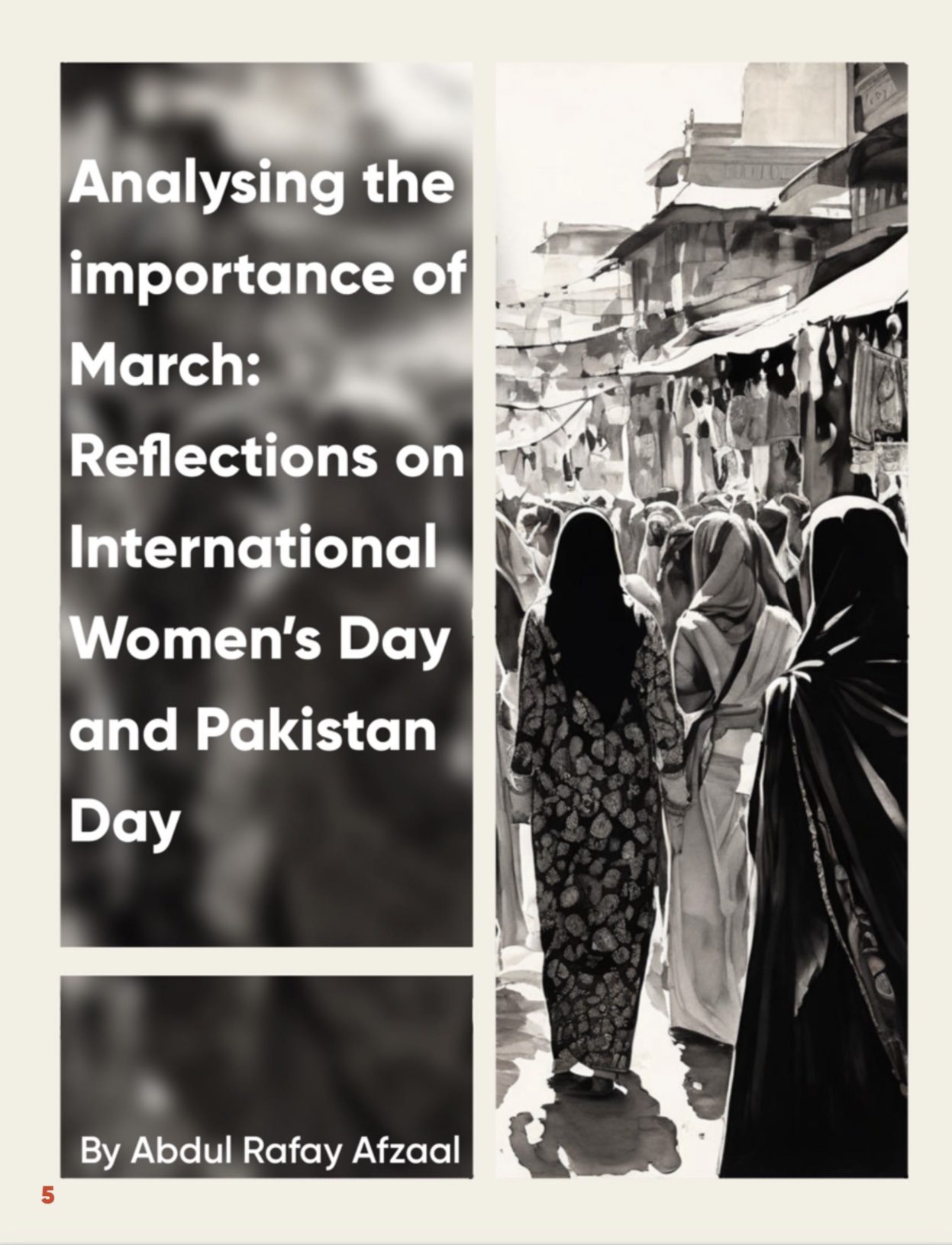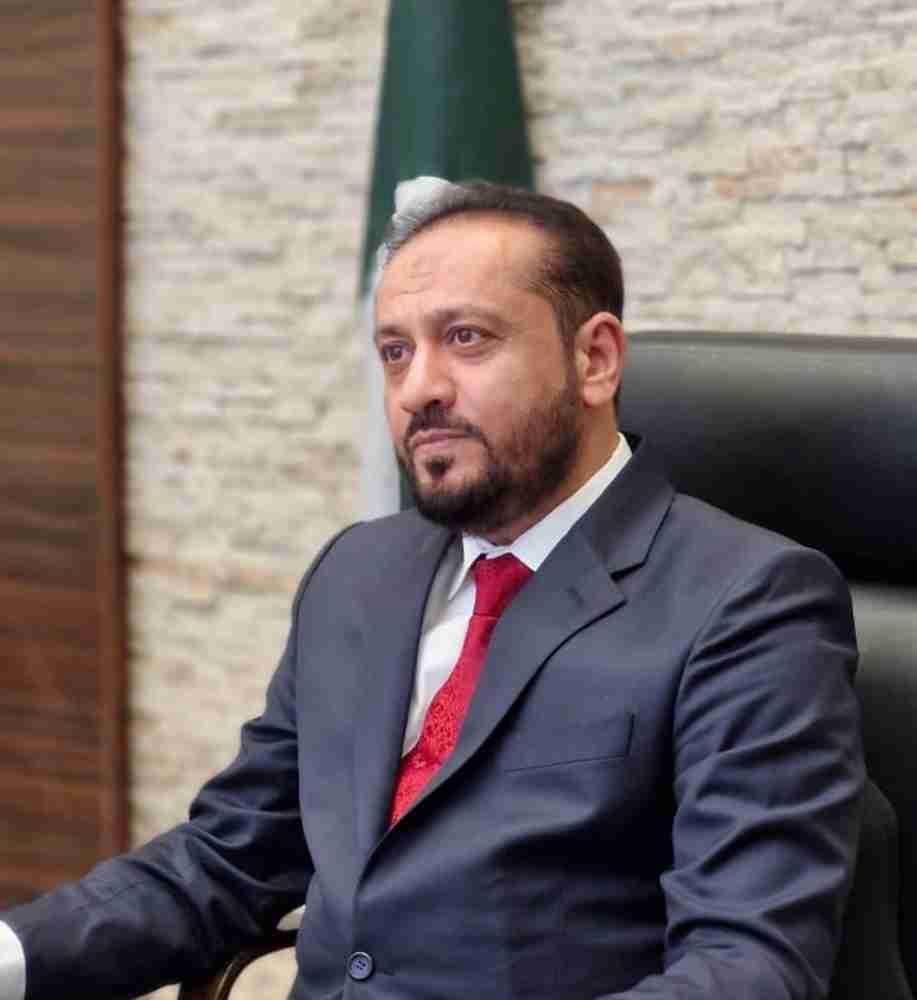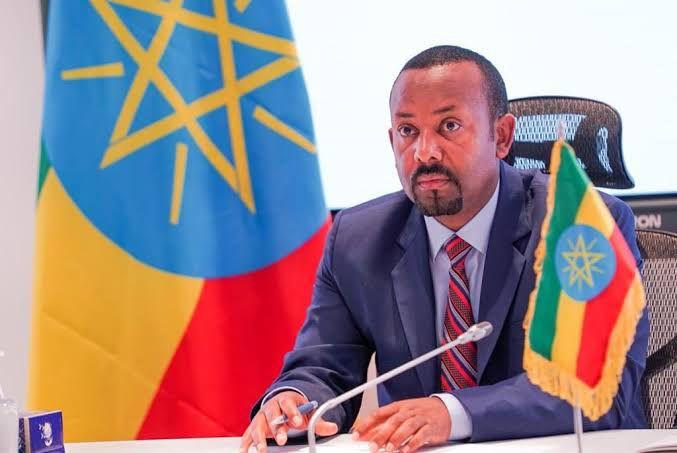By Abdul Rafay Afzal (Editor in Chief)
In the month of March, two significant events hold utmost importance: International Women’s Day and Pakistan Day.
International Women’s Day, celebrated annually on March 8th, recognizes the achievements and struggles of women worldwide.
This day serves as a reminder of the ongoing fight for gender equality and women empowerment. As of the latest statistics available (2019-2023), progress towards gender equality remains a persistent challenge globally.
According to recent studies, the World Economic Forum’s Global Gender Gap Report highlights the significant gender disparities across various dimensions such as educational attainment, economic participation, and political empowerment. The report reveals that the gender gap still persists, with an estimated time frame of 136.5 years to achieve complete gender equality globally. Such findings emphasize the need for continuous efforts to address these disparities and promote gender equality in all spheres.
Shifting our focus to Pakistan, the journey towards women’s empowerment and gender equality has encountered both progress and challenges. While the Constitution of Pakistan guarantees equal rights to all citizens, including women, there are still numerous hurdles to overcome. Research conducted by various organizations reveals that women in Pakistan face disparities in accessing education and employment opportunities.
Education remains a key area where gender disparities persist. Data from recent studies (2019-2023) indicate that the literacy rate for women in Pakistan is still lower compared to men. Limited access to quality education, cultural norms, and societal barriers contribute to this gender disparity. Efforts should be made to promote inclusive and gender-responsive education policies to empower women and promote their participation in various sectors of society.
The economic empowerment of women is vital for their overall progress. However, studies show that the female labor force participation rate in Pakistan remains low. Socio-economic challenges, cultural norms, and traditional gender roles hinder women’s active participation in the workforce. Creating an enabling environment that promotes women’s economic empowerment through policies, access to finance, and supportive working conditions is crucial to addressing this issue.
Furthermore, Pakistan Day on March 23rd commemorates the adoption of the historic Pakistan Resolution in 1940. This resolution laid the foundations for the creation of an independent state for Muslims in the Indian subcontinent. Since its inception, Pakistan has faced various challenges and made significant progress in multiple sectors.
In terms of the economy, Pakistan has experienced fluctuations in growth rates and encounters various economic challenges.
As per recent reports, the International Monetary Fund (IMF) projects a rebound in Pakistan’s GDP growth after a contraction in the previous year.
However, sustainable economic development requires continuous efforts to address economic instability, enhance investment opportunities, and promote a business-friendly environment.
As Pakistan navigates the evolving global landscape, its foreign policy and regional collaborations play a crucial role. Recent developments in neighboring Afghanistan and the shifting regional dynamics necessitate a proactive approach to safeguard national interests, maintain regional stability, and foster international partnerships.
In summary, the significance of March lies in its observance of International Women’s Day and Pakistan Day. These events remind us of the progress made and the challenges that persist in promoting women’s empowerment, gender equality, and national development.
Ensuring equal access to education, addressing gender disparities in the workforce, and fostering economic stability are essential steps towards achieving these goals.
Abdul Rafay is from Pakistan currently a law student at LJMU, UK. He is the Editor in Chief and Founder of The Advocate Post He writes on geopolitics, international relations, and legal affairs ete, in more than 10 countries in English & Urdu languages. He has been honoured of being one of Pakistan’s and World’s youngest columnists and editors.
Author can be reached at rafayafzal555@gmail.com
Instagram: @arafzal555






